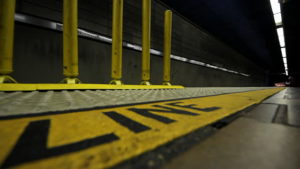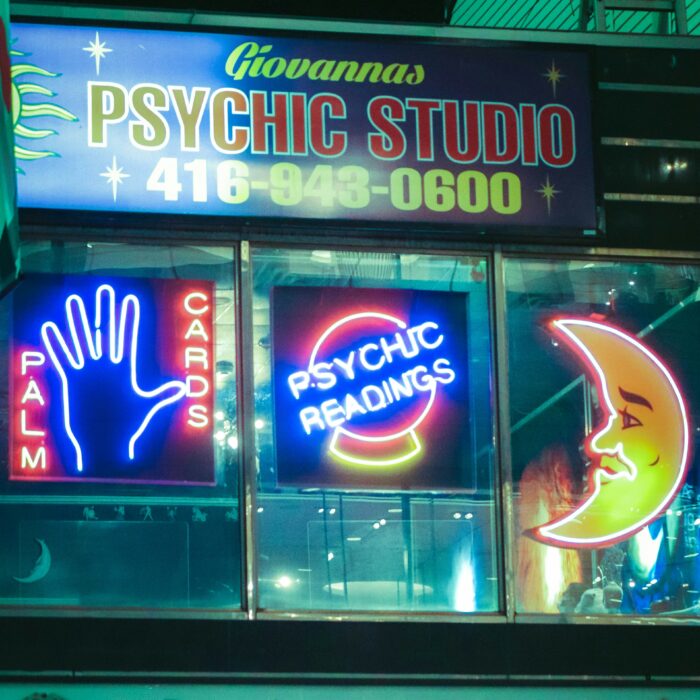You have no items in your cart. Want to get some nice things?
Go shopping
 Saturday 6th August 2016
Saturday 6th August 2016
The last time.
I don’t want to think about it.
It was embarrassing having to call my mother and explain that I was stuck at St Pancras Station with a valid rail ticket in my purse. People have no idea how a train can debilitate, sending a healthy human being into cognitive, multi-sensory lockdown – at the mere rattle of cogs on sleepers. They begin to imagine all sorts of things.
“Oh dear, what happened?”
“Did someone frighten you?”
There’s no point trying to explain.
I just want my life back. This is urgent.
I need to find out whether energy balancing therapies can restore freedom. Has my work with Sally changed anything since January? There’s only one way to find out: a trip to Bedford station.
*
The hall is buzzing; people are clamouring through the juddering clefts of the ticket barriers, ambling around the hoarding displaying train times, others stand rock still, heads craned. Pop tunes burble from the adjacent café and the whiff of fresh coffee is a reminder of old times – good and bad. I’m conscious of my feet; aware of a prickling unease in my toes, my soles un-sticking from my trainers, despite the magnets inside. My mind is directing my legs and my feet, leading them deeper into the concourse. I feel OK, body calm. I can do this.
There’s an Asian man standing by the ticket gate reserved for passengers carrying suitcases and wheelchairs. He’s middle aged-looking with a thinning crop of silver speckled obsidian hair, stern and stiff in posture, wearing the uniform black trousers and bright orange gilet. I approach him and ask if I can “sit in the waiting room on Platform 1 for a few minutes to see how I feel. I might go over the footbridge and sit in the other waiting room later. It depends how I feel.” Hawkish brown eyes sink into mine, searchingly.
“I’ll be writing notes for a story I’m researching about my experience,” I say, remembering my plan. I need to sound credible. Here I am dressed in gym leggings with a rucksack strapped to my back. I don’t want them to get funny ideas, start thinking I’m a nutter.
“I haven’t been on a train for years,” I continue, warming to my story. “I had some bad experiences and I’m trying to get my confidence back so I can travel again. I’m writing a book about it. I’ll just sit quietly and make some notes. No journeys today. Hopefully, another day. Is that OK? I won’t be long.”
It seems to work.
“I need to speak to my manager,” he says. “One moment.”
He turns round to the younger man observing the traffic flow, a few feet behind, and waves me through. The station attendant, slight and spry, with weasel-like sharpness bounces on his toes and peers down at me. I repeat my request.
“Oh, I could tell you some stories,” he splutters, shaking his head with a hollow laugh, eyes rolling. “Oh yes…” I catch a fleeting far away look. When he turns to me again there’s a softness in those blue eyes, a subtle recognition. He understands trauma, I think to myself. He doesn’t think I’m crazy. The badge attached to his jacket says: Jason, Assistant Supervisor.
“I bet you’ve had a few hair raising experiences here,” I add. My concentration is wavering as my eyes drift on to the scene on Platform 1; the train resting on the tracks. We are just a couple of feet from the door, separated by a wall of glass.
He instructs me to follow.
We come to a halt on the left side of the platform, a quiet part beneath the footbridge, and he’s talking in a low voice to a tall gangly man with a thick Afro dressed in the same orange fluorescent gilet and black trousers.
“My boss,” he says, grinning.
The station supervisor scrutinises me with an open expression and I appeal to the good heart I’m sensing about him. This time, I add that I’m a member of the Nation Union of Journalists when I repeat the line about making notes.
“I’ll have to contact our Media Department for permission. You’re not allowed to take photos.”
“I won’t be taking any photos. I don’t have a camera. I’m not writing for the press. It’s just for personal use, for my book.”
They both face me, eyes lit with curiosity.
“I’m not affiliated to anyone,” I continue. I can’t wait to get off the platform. I feel vulnerable: weightless, unrooted, as if a gust of wind could lift me up and carry me over the edge. I’m glad the supervisor stands between me and the railway tracks. The two men are looking down on me kindly now, eyes wide as if I am an object of wonder.
“Have you got water?” asks the supervisor.
I pat my rucksack. “Yes, thank you.”
I’ve got the all clear.
“If you need anything, just let us know,” pipes up Jason. “We’re here to help.”
“Thank you, I will. Just knowing this makes me feel better.”
I walk up towards the waiting room, which you have to enter from Platform 1, even though it adjoins the hall and backs onto the café. The air is thick with condensed heat; there’s no ventilation, and not a single breathing soul. I have a clear view of the platform through the glass wall, which sits before me, cinema-size. Heat is the least of my worries; I just want to feel relaxed, normal. I settle down in one of the plastic seats nailed to the concrete floor, peel my sports jacket over my shoulders, pull out my notebook and pen, close my eyes and inhale.
It’s that Bob Marley song playing.
To the rescue, here I am
Want you to know, y’all, can you understand?
….
Sun is shining, the weather is sweet now
Make you wanna move your dancing feet, yeah
But to the rescue, here I am
The lyrics speak to me. First the station attendants and now this. Angels are watching over me, sending reassurance.
The scent of fresh coffee makes me think of mornings, crawling out of bed, dozy after a deep sleep, semi-awake, feeling my way to the kitchen. I want to feel dozy, half asleep. I want to feel calm in my body.
Jason comes in and hands me a small bottle of cool mineral water, enquiring whether I am OK.
“Let me know if there’s anything I can do,” he says.
“It helps knowing you’re there,” I reply, thanking him for being understanding. I feel safer in the waiting room, separated from the edge of the platform.
“That’s OK, just take your time,” he says before leaving.
A hulk of white rail carriages pulls into Platform 1. Sunlight bounces off the roof of the train and hits my eyes. I am able to readjust my vision and watch people stepping out of the carriages, sleeves rolled up, blinking, some of them are elderly with hunched shoulders, walking stiffly toward the ticket barriers.
My heart beats a steady tune.
Legs normal.
I’m wriggling my toes inside my trainers.
There are no racing thoughts.
No terror in my body.
The oppressiveness of the heat is comforting. It’s like being wrapped in a warm blanket when your heart is chilled. It’s like being in a big sauna with glass walls and train views. The trains are air conditioned says Jason. This one looks to be at least five carriages long. It’s a Brighton train.
There’s nothing threatening about being here. Passengers come and go, café noises and background music lull my senses. Sunshine pierces my eyes.
Suddenly it’s 5.30pm. I’ve been in the waiting room for 35 minutes, just staring through the window and scribbling, and listening.
I get up to leave, shoving my notebook and pen into my bag. The door swings behind me and I’m fixed to the spot, holding the gleaming white carriages in my gaze, torn up in grief.
It’s me in there, pressed into a corner by the window, waiting for the sliding doors to lock, soaked in a cold, wet sheet of fear, dreading the click. Legs numb, holding on, ready to stifle the scream: “Stop, let me off!”. There’s brandy in my water bottle. I slug it back until I don’t have to think about breathing, and volts: cranial blows and nerves rallying against surrender. A flush of heat skids through me from head to toe, and it’s as if I’m melting in a soft embrace. I’ll make it. I can do it now.
The memories are encoded in the tissues of my soul, raw as yesterday, even though I don’t do horror rides any more, not since St Pancras, not since the day the medicine lost its power.
The train moves off and I lift my arm to wave to Jason who is standing at the far end of the platform. His face breaks into a beckoning smile, and he signals me to come over.
“It’s people like you who make our job-” he begins, but I’m gone, crumpled up, heart lodged in my throat, eyes brimming.
No! Pull yourself together, concentrate! I command myself.
I’m looking into Jason’s eyes and watching his lips move, close to falling into him. So close… Thankfully, self-restraint wins, and I say goodbye.
*
I walk limply up the hill towards the gym with tears streaming down my face. I don’t know why. It’s a release, like a river bursting its banks after a storm.
I’ve just spent almost an hour inside a railway station without a single substance in my body to alleviate terror. This is a first in ten years, or more.

About Anna Bragga
Anna Bragga wrote lifestyle features for Virgin.Net and co-created fashion industry magazine, Alt.Wear, before entering the world of Third Sector public relations. Now a freelance film maker and journalist living in Bedford, she is writing a memoir on her recovery from the crippling effects of complex trauma.



